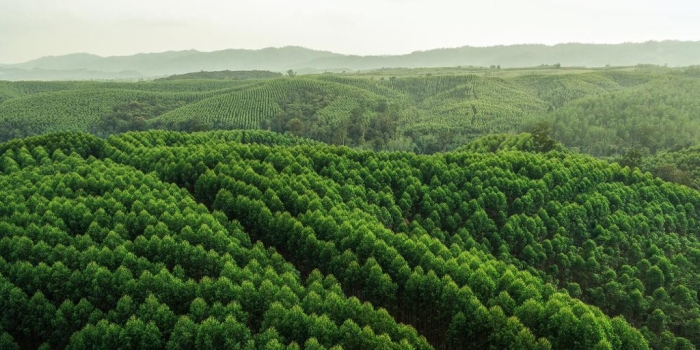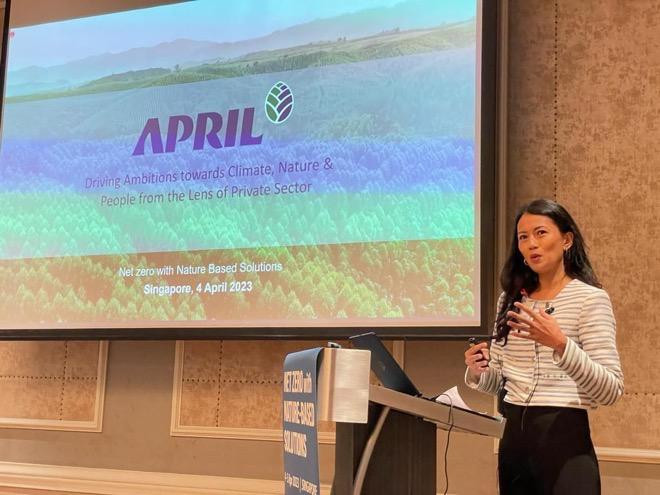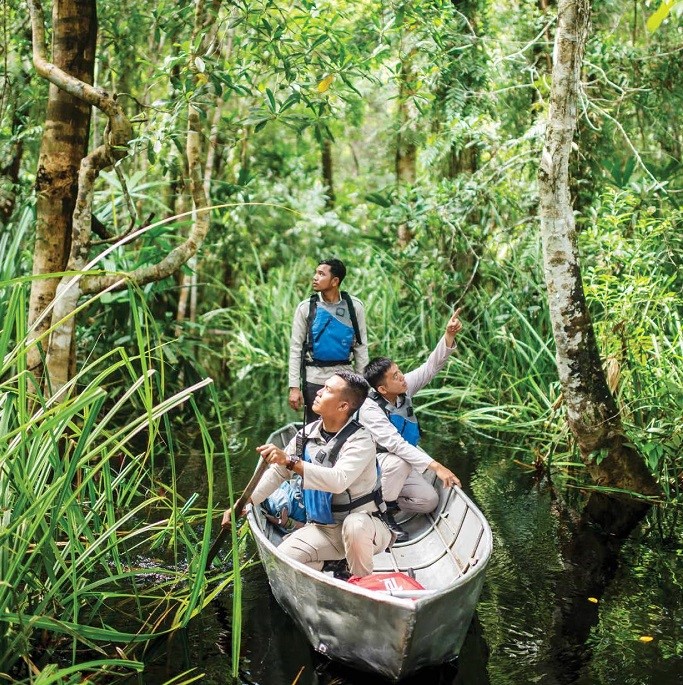Observing International Day of Forests 2019
21 March is International Day of Forests. It is the day that the United Nations raises awareness on the importance of all types of forests. Also known as World Forest...

Latest updates on what's happening in RGE Group

Nature-Based Solutions (NbS) have emerged as a critical approach to addressing climate change, protecting ecosystems, preventing biodiversity loss, and supporting livelihoods. However, implementing these solutions requires increased funding, technical support, and collaboration between governments, the private sector, and communities.
At the recent Net-Zero with Nature-based Solutions conference in Singapore, Nadine Zamira Syarief, Sustainability and ESG Manager, APRIL Group, spoke about how APRIL is investing in NbS initiatives to deliver lasting and positive impacts on climate, nature and people, in line with its APRIL2030 targets. The conference was attended by representatives from other international organisations, including PEFC International, Sime Darby, Asian Development Bank (ADB), Tata Steel and Natura & Co.

Nadine Zamira Syarief, Sustainability and ESG Manager, APRIL Group, speaking at the Net-Zero with Nature-based Solutions conference
“From our experience, it is important to ground nature-based solutions on credible science, work with local communities and position them both as beneficiaries and actors, and link these solutions to the business arm to ensure long-term financing and its sustainability,” said Nadine.
APRIL, a member of the Royal Golden Eagle group of companies, has invested in four greenhouse gas (GHG) monitoring towers and equipment to fully understand the emissions dynamics across different land use types that APRIL manages, and enabling the company to contribute to national and global scientific knowledge. Since investing in the first towers in 2016, APRIL’s scientists have been working alongside the broader scientific community to publish peer-reviewed studies on tropical peatland ecosystems based on the data collected, she said.
In addition to the company’s scientific contributions, Nadine also spoke about how APRIL has undertaken extensive conservation and restoration efforts that support its mitigation efforts. Restorasi Ekosistem Riau (RER), is an ecosystem restoration project covering over 150,000 ha of the Kampar Peninsula in Indonesia that was initiated in 2013 by APRIL. APRIL’s steadfast commitment to conservation and restoration is backed by a conservation fund financed by applying a USD$1 allocation for every ton of wood harvested. With its commitment to responsible land management, protection and restoration, APRIL is taking important steps toward achieving its sustainability goals while making a positive impact on the environment and local communities, said Nadine.

Through initiatives such as the Restorasi Ekosistem Riau (RER), APRIL and RGE are committed to promoting sustainable practices and environment protection
Separately, at the same event, Addriyanus Tantra, SFM Certification and Compliance Manager, Sustainability Operations at APRIL said sustainable forest management was an integral part of APRIL’s business operation, which continue to be guided by the company’s Sustainable Forest Management Policy 2.0 and its ambitious APRIL2030 targets.
Collaboration with multiple stakeholders is a key factor in achieving sustainable forest management practices and initiatives, he said. However, among all stakeholders, the communities living close to the boundaries of operations are the most significant, so inclusive engagement is a priority, he added.
“Sustainable forest management allows us to protect and produce from the same landscape. Our experience shows that we can’t do it alone. We need to collaborate with all stakeholders, but the most important stakeholder of all are the local communities”.